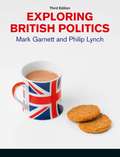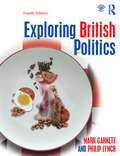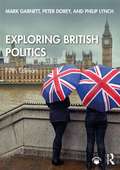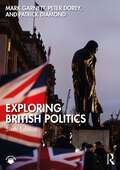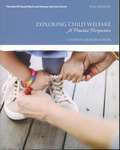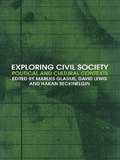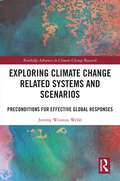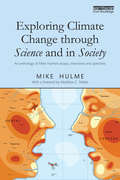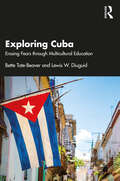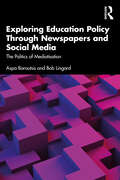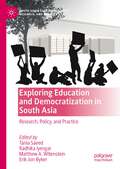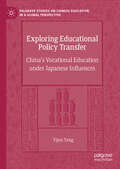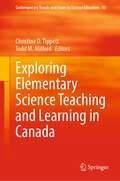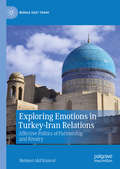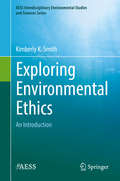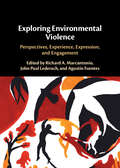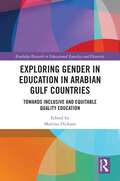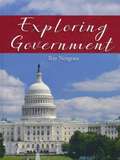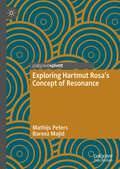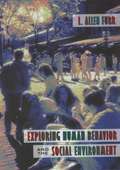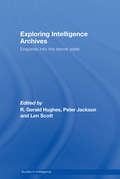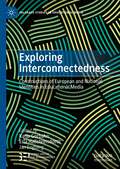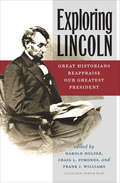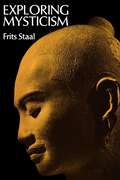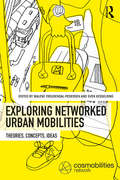- Table View
- List View
Exploring British Politics
by Philip Lynch Mark GarnettConcise, comprehensive and accessible, Exploring British Politics presents an insightful approach to British politics with a special emphasis on developments since the 2010 general election and the formation of Britain's first coalition government since 1945.Designed to stimulate critical analysis and provoke lively debate, it provides new perspectives on two key themes - the health of British democracy and the transition from traditional models of government to more flexible forms of 'governance'.
Exploring British Politics
by Philip Lynch Mark GarnettExploring British Politics is a concise, comprehensive and accessible guide to the subject. Fully updated and revised, the new edition covers the 2015 general election and recent developments in the role of political parties, changes in party ideology, the UK's relationship with the European Union, and the future of the UK itself. Designed to stimulate critical analysis and provoke lively debate, it provides new perspectives on two key themes - the health of British democracy and the transition from traditional models of government to more flexible forms of 'governance'. The special features of the new edition include: Comprehensive analysis of the 2015 general election and the 2014 referendum on Scottish independence A focus on topical controversies, such as the relationship between politicians and the media and the arguments for and against Human Rights legislation Explanation of the ways in which British governments have responded to dramatic social change, and to serious economic challenges in an era of 'globalisation' Extensive guides to further reading at the end of each chapter Whilst it provides the essential historical background for a full understanding of British politics, contemporary issues are to the fore throughout and readers are encouraged to scrutinise what is often taken for granted and to develop their own thoughts and ideas. Whether studying the subject for the first time or revisiting it, Exploring British Politics is the ideal undergraduate text.
Exploring British Politics
by Peter Dorey Philip Lynch Mark GarnettExploring British Politics is a concise, comprehensive, and accessible guide to the subject. Fully updated and revised, the new edition covers developments since 2016 in the role of the executive, Parliament, the civil service, political parties, general elections, party ideology and membership, as well as examining turmoil and leadership battles within the Labour and Conservative parties, the politics of growing inequality, demographic trends and their political consequences, and the future of the UK itself. Stimulating critical analysis and lively debate, it provides new perspectives on two key themes – the health of British democracy and the transition from traditional models of government to more flexible forms of ‘governance’. Key features include: a comprehensive analysis of the 2019 general election, Brexit developments since the 2016 Referendum to today’s ongoing negotiations, and the shadow cast by the COVID-19 global pandemic and its implications; topical coverage of the fall of the Corbyn and May leaderships, the new Starmer and Johnson era, the rise and fall of the ‘Change UK’ party, the economic crisis, the role of special advisers, new social movements such as Extinction Rebellion and Black Lives Matter, and much more; extensive guides to further reading at the end of each chapter; and rich illustrations visually representing examples and data. Whilst the book provides an essential historical background, contemporary issues are to the fore throughout and readers are encouraged to assess critically received wisdoms and develop their own thoughts and ideas. Whether studying the subject for the first time or revisiting it, Exploring British Politics is the ideal undergraduate text.
Exploring British Politics
by Patrick Diamond Peter Dorey Mark GarnettExploring British Politics is a concise, comprehensive, and accessible guide to the subject. Fully updated and revised, the new edition covers developments since 2016 in the role of the executive, parliament, the civil service, political parties, general elections, party ideology, and membership, as well as examining turmoil and leadership battles within the Labour and Conservative parties, the politics of growing inequality, public action and reaction, demographic trends and their political consequences, and the future of the UK itself. Stimulating critical analysis and lively debate, it provides new perspectives on two key themes – the health of British democracy and the transition from traditional models of government to more flexible forms of ‘governance’. Key features include: Comprehensive analysis of the 2019 general election, Brexit developments since the 2016 Referendum to today’s ongoing impacts, and the shadow cast by the COVID-19 global pandemic and its implications; Topical coverage of the fall of the Truss leadership, the new Johnson and Sunak era, the rise and fall of the ‘Change UK’ party, the economic crisis, the role of special advisers, new social movements such as Extinction Rebellion and Black Lives Matter, and much more; Extensive guides to further reading at the end of each chapter; Richly illustrated through examples and data, often visually represented; Online support in the form of a comprehensive website with additional content. Whilst the book provides an essential historical background, contemporary issues are to the fore throughout and readers are encouraged to assess critically received wisdoms and develop their own thoughts and ideas. Whether studying the subject for the first time or revisiting it, Exploring British Politics is the ideal undergraduate text.
Exploring Child Welfare: A Practice Perspective
by Cynthia Crosson-TowerThe text emphasizes the practice perspective and features numerous case examples that allow students to get a real-life look at the population they will be serving. References to applicable social work competencies appear throughout the book to help guide readers in learning how the competencies apply to practice situations.
Exploring Civil Society: Political and Cultural Contexts
by David Lewis Hakan Seckinelgin Edited by Marlies GlasiusThis volume explores how the idea of civil society has been translated in different cultural contexts and examines its impact on politics worldwide. Comparing and contrasting civil society in Latin America and Eastern Europe, Western Europe and the United States, Africa and South Asia, and the Middle East, the contributors show that there are multiple interpretations of the concept that depend more on the particular political configuration in different parts of the world than on cultural predilections. They also demonstrate that the power of civil society depends less on abstract definitions, and more on the extent to which it is grounded in the context of actual experiences from around the world. This book includes some of the biggest names in the area such as Mary Kaldor, Ronnie Lipschutz and Helmut Anheier.
Exploring Climate Change Related Systems and Scenarios: Preconditions for Effective Global Responses (Routledge Advances in Climate Change Research)
by Jeremy Winston WebbJeremy Webb draws on multiple disciplines to piece together the climate change puzzle, identifying what it would take to limit climate change and its impacts.The book starts with a summary of the climate change problem and develops a Climate Change, National Interests, International Cooperation (CCNIIC) model of the climate response system. Webb reviews ‘reverse stress testing’, ‘backcasting’, and ‘theory of change’ methods, showing how they can be used to collect a large sample of possible futures. He also shows how we can explore the multiverse of futures using a new method called thematic chain analysis, finding relevant connections across scenarios. In the second half of the book, Webb explores 175 scenarios collected through 27 interviews with climate change experts. From these scenarios a signal response model is developed. Preconditions for effective social change and behaviour, political will and policy, as well as business and economic activity are synthesised. Lessons include preconditions for effective global responses to climate change, showing what it takes to limit climate change and related impacts. The book finishes with an epilogue, applying the signal response model and preconditions for effective global responses to COVID-19, demonstrating that models from this book can be applied to other global response problems – and used to quickly assess possible response strategies.This book will be of great interest to students and scholars of climate change, environmental policy and future studies.
Exploring Climate Change through Science and in Society: An anthology of Mike Hulme's essays, interviews and speeches
by Mike HulmeMike Hulme has been studying climate change for over thirty years and is today one of the most distinctive and recognisable voices speaking internationally about climate change in the academy, in public and in the media. The argument that he has made powerfully over the last few years is that climate change has to be understood as much as an idea situated in different cultural contexts as it is as a physical phenomenon to be studied through universal scientific practices. Climate change at its core embraces both science and society, both knowledge and culture. Hulme’s numerous academic and popular writings have explored what this perspective means for the different ways climate change is studied, narrated, argued over and acted upon. Exploring Climate Change through Science and in Society gathers together for the first time a collection of his most popular, prominent and controversial articles, essays, speeches, interviews and reviews dating back to the late 1980s. The 50 or so short items are grouped together in seven themes - Science, Researching, Culture, Policy, Communicating, Controversy, Futures - and within each theme are arranged chronologically to reveal changing ideas, evidence and perspectives about climate change. Each themed section is preceded with a brief introduction, drawing out the main issues examined. Three substantive unpublished new essays have been specially written for the book, including one reflecting on the legacy of Climategate. Taken as a collection, these writings reveal the changes in scientific and public understandings of climate change since the late 1980s, as refracted through the mind and expression of one leading academic and public commentator. The collection shows the many different ways in which it is necessary to approach the idea of climate change to interpret and make sense of the divergent and discordant voices proclaiming it in the public sphere.
Exploring Cuba: Erasing Fears through Multicultural Education
by Bette Tate-Beaver Lewis W. DiuguidExploring Cuba: Erasing Fears Through Multicultural Education details the cultural and professional exchanges to Cuba organized by the National Association of Multicultural Education (NAME) between 2015 and 2019, with additional reflections on the impact of the coronavirus pandemic on Cuba—U.S. relations. Because of the long-imposed U.S. embargo, or blockade, access to information about life in Cuba can be limited in the U.S. This book chronicles first-hand account of NAME’s trips to Cuba over a 5-year period. Interspersed with insights from U.S.-based multicultural educators, authors and Cuban delegates, it documents what NAME members learned about Cuba’s people, history, health care system, culture, arts, and education systems. It also explores the effects of the coronavirus global pandemic on Cuba and its vital tourist industry, as well as the July 2021 protests and aftermath, including a new wave of immigration to the U.S. The book argues for the end of the U.S. embargo with Cuba and the normalization of diplomatic relations between the two countries, so that unrestricted tourism and trade can benefit both countries. Combining travelogue observations with statistics and scholarly accounts, this volume will be useful reading for scholars and students of Multicultural Education, International Education and Comparative Education. It will also be beneficial to educators and Cuba solidarity activists.
Exploring Education Policy Through Newspapers and Social Media: The Politics of Mediatisation
by Aspa Baroutsis Bob LingardExploring Education Policy Through Newspapers and Social Media offers an original, theorised, and empirically based account of contemporary (re)presentations, (re)articulations, and (re)imaginings of education policy through news and new media. In its thorough exploration of the uses and effects of newspapers and Twitter in education policy, the book provides a detailed, research-based account of media influences, and opens up multiple future research agendas in media sociology and policy sociology in education. The authors place an important, analytical focus on mediatisation and social mediatisation or deep mediatisation, and how both have effects and affects in education policy and politics. Their analyses situate these, sociologically, within changing societies, changing media, and changing education policy. The book also explores the effects of datafication and digitalisation of the social in all forms of media and their manifestations in morphing imbrications between the global, the national, and the local in education policies. This book will be of great interest to researchers, scholars, and higher degree research students in the domains of media sociology and policy sociology of education. It also will be of interest to policymakers and politicians in education, teacher unions, and education activists, journalists, and those concerned about the impacts of the decline in legacy media and the surveillance and commercialisation possibilities of new media.
Exploring Education and Democratization in South Asia: Research, Policy, and Practice (South Asian Education Policy, Research, and Practice)
by Tania Saeed Radhika Iyengar Matthew A. Witenstein Erik Jon BykerThis volume brings together scholars, practitioners, activists, and students to reflect on socio-political transitions taking place in countries across South Asia and their implications for democracy and education. It provides an important intervention for comparative education in South Asia by looking at the kind of ideological tensions that exist within the education systems, and how these competing agendas are visible at different levels. At a time when students have been protesting for their rights across educational institutions in South Asia, where the Covid-19 pandemic has exacerbated inequalities with learning losses, and job losses, this collection creates a space to reflect on the limitations and possibilities of education in democracies across South Asia.
Exploring Educational Policy Transfer: China’s Vocational Education under Japanese Influences (Palgrave Studies on Chinese Education in a Global Perspective)
by Yijun YangThis book examines the detailed process of China’s borrowing from the Japanese vocational education model from the perspective of educational policy transfer. It is expected that a systematic examination of the history of China’s borrowing of Japanese vocational education through the lens of educational policy transfer will, on the one hand, fill the gap in the study of the history of vocational education in China from the perspective of educational policy transfer, and on the other hand, allow the applicability of the educational transfer theoretical framework to be tested through the example of China’s borrowing from Japanese vocational education.
Exploring Elementary Science Teaching and Learning in Canada (Contemporary Trends and Issues in Science Education #53)
by Christine D. Tippett Todd M. MilfordThis edited volume showcases current science education research in Canada, from pre-Kindergarten to Grade 7, conducted in Canada by a diverse group of researchers from across the country. We draw on the themes that emerged from our previous book, Science Education in Canada: Consistencies, Commonalities, and Distinctions, to guide the structure of this book on elementary science education research. In particular, chapters on science teacher preparation; Indigenous perspectives; environmental education; science, technology, engineering, and mathematics (STEM); and science, technology, society, and the environment (STSE) reflect a Canadian perspective. However, these themes are of global interest and authors include ideas for how science education research in Canada might be used by academics and researchers in other countries. This book builds a cohesive picture of current elementary science education research in Canada, highlighting themes that will resonate with international readers.
Exploring Emotions in Turkey-Iran Relations: Affective Politics of Partnership and Rivalry (Middle East Today)
by Mehmet Akif KumralThis book explores emotional-affective implications of partnership and rivalry in Turkey-Iran relations. The main proposition of this research underlines the theoretical need to reconnect psycho-social conceptualizations of “emotionality,” “affectivity,” “normativity,” and “relationality.” By combining key theoretical findings, the book offers a holistic conceptual framework to better analyze emotional-affective configuration of relational rules and roles in trans-governmental neighborhood interactions. The empirical chapters look at four consecutive periods extending from the end of First World War (November 1918) to the resuscitation of US sanctions against Iran (November 2018). In each episode, global-regional contours and dyadic dynamics of Ankara-Tehran relationship are examined critically. The century-long history of emotional entanglements and affective arrangements exposes complex patterning of “feeling rules.” Two countervailing constellations still reign over relational narratives. While the 1514 Çaldıran war myth reproduces sectarian resentment and confrontational climate, the 1639 Kasr-ı Şirin peace story reconstructs secular sympathy and collaborative atmosphere in Turkish-Iranian affairs.
Exploring Environmental Ethics: An Introduction (Aess Interdisciplinary Environmental Studies And Sciences Ser.)
by Kimberly K. SmithThis book is designed as a basic text for courses that are part of an interdisciplinary program in environmental studies. The intended reader is anyone who expects environmental stewardship to be an important part of his or her life, as a citizen, a policy maker, or an environmental management professional. In addition to discussing major issues in environmental ethics, it invites readers to think about how an ethicist's perspective differs from the perspectives encountered in other environmental studies courses. Additional topics covered include corporate social responsibility, ecological citizenship, property theory, and the concept of stewardship as a vocation.
Exploring Environmental Violence: Perspectives, Experience, Expression, and Engagement
by Agustín Fuentes John Paul Lederach Richard A. MarcantonioThe contributors to this book represent a wide breadth of scholarly approaches, including law, social and environmental science, engineering, as well as from the arts and humanities. The chapters explore what environmental violence is and does, and the variety of ways in which it affects different communities. The authors draw on empirical data from around the globe, including Ukraine, French Polynesia, Latin America, and the Arctic. The variety of responses to environmental violence by different communities, whether through active resistance or the creative arts, are also discussed, providing the foundation on which to build alternatives to the potentially damaging trajectory on which humans currently find themselves. This book is indispensable for researchers and policymakers in environmental policy and peacebuilding. This title is also available as Open Access on Cambridge Core.
Exploring Gender in Education in Arabian Gulf Countries: Toward Inclusive and Equitable Quality Education (Routledge Research in Educational Equality and Diversity)
by Martina DicksonThis seminal volume fills a gap in current literature on education, gender, and development by giving voice to the Arab Gulf region, contrasting key issues with those felt globally in order to support a more sustainable, gender‑equitable future of education in the region.Heavily linked to Sustainable Development Goal 4 – which calls for an inclusive and equitable quality of education for all – this book presents case studies on a wide range of issues such as school attainment, academic performance, and gender disparities within higher education in the Arabian Gulf, using quantitative research, qualitative interviews, and documentary analysis to make broader connections to issues of global significance. Exploring a deeper and more holistic understanding of the external factors which affect both participation and performance within education and academic settings, this book considers the influence of home support systems as well as cultural and familial factors which can lead to large‑scale gendered differences in learning attitudes, attendance, and even testing, in the region.Ultimately supporting those in the education sector through frameworks of gender inclusion in both schools and higher educational settings, this volume will be of use to researchers, scholars, and postgraduate students involved with higher education, school leadership, management and administration, sociology of education, and gender studies in the Arab Gulf region more broadly.
Exploring Government
by Ray NotgrassThe Notgrass Company Exploring Government curriculum is a one-semester (half-credit) high school course that covers the government of the United States from its beginning to the present with a special emphasis on the Biblical pattern for government and the U.S. Constitution. Students will learn about federal, state, and local government and become better equipped to understand our country's government as they learn about contemporary issues facing our nation today. This Exploring Government textbook includes 75 lessons. At the beginning of each unit, an introduction, list of books used in the unit, project literature assignments, and any additional assignments are laid out; these overarching assignments are broken up into daily tasks given at the end of each day's reading.
Exploring Hartmut Rosa's Concept of Resonance
by Mathijs Peters Bareez MajidThis book makes a compelling case for utilising experiences of resonance in various academic and societal fields. The concept of resonance was first introduced by Hartmut Rosa to foreground the importance of affective, emotional, transformative and uncontrollable experiences in socio-political contexts that he characterizes as alienating. Based on a critical reading of Rosa’s theory and further developed through engagement with Theodor W. Adorno, Gilles Deleuze, Hannah Arendt, Judith Butler and others, this book introduces the notion of a ‘spectrum of resonance’ which encompasses both critical resonance and affirmationist resonance. This spectrum of resonance is used to analyse various forms of aesthetic experience illustrated with reference to Edgar Reitz’s film Heimat and the music of Nick Cave and Kayhan Kalhor. The spectrum is also deployed in the fields of museum, memory and trauma studies to show how experiences of resonance contribute to the constitution of political and social identities. The focus here is on memory practices in the Kurdistan Region of Iraq and the book seeks to decolonize resonance theory.
Exploring Human Behavior and the Social Environment
by L. Allen FurrIndividuals' behaviors are a function of their interactions with the bio-psycho-social contexts in which they are situated. Consequently, in this book considerable attention is paid to the various aspects of those environments. Topics such as the effects of social class and community on behavior are given considerable attention. How individuals and groups relate to political and economic systems and bureaucracies are important themes as well.
Exploring Intelligence Archives: Enquiries into the Secret State (Studies in Intelligence)
by Peter Jackson Len Scott R. Gerald HughesThis edited volume brings together many of the world's leading scholars of intelligence with a number of former senior practitioners to facilitate a wide-ranging dialogue on the central challenges confronting students of intelligence. The book presents a series of documents, nearly all of which are published here for the first time, accompanied by both overview and commentary sections. The central objectives of this collection are twofold. First, it seeks to build on existing scholarship on intelligence in deepening our understanding of its impact on a series of key events in the international history of the past century. Further, it aims to explore the different ways in which intelligence can be studied by bringing together both scholarly and practical expertise to examine a range of primary material relevant to the history of intelligence since the early twentieth century. This book will be of great interest to students of intelligence, strategic and security studies, foreign policy and international history.
Exploring Interconnectedness: Constructions of European and National Identities in Educational Media (Palgrave Studies in Educational Media)
by Jan Engberg Katja Gorbahn Erla HallsteinsdóttirThis volume explores the socio-cultural and media background of a critical and ongoing political challenge: the complex entanglement between European integration and strong national agendas in the context of globalisation. It does so using educational media - both textbooks and digital media - as sites of cultural contestation to enquire into the intricate relationships around national and European identities and aspects of students’ knowledge and reception. Using a variety of methods and technologies, the chapters analyse identity constructions present in educational media discourses, embedded as they are in their national and European contexts and as both the catalysts and products of their time. The book is a study of the post-digital condition in an educational context, exploring the potential of digital humanities and linguistic approaches for educational media research and employing methods such as eye-tracking or concept maps.
Exploring Lincoln: Great Historians Reappraise Our Greatest President (The\north's Civil War Ser.)
by Harold Holzer, Craig L. Symonds, and Frank J. WilliamsIn these 16 essays, Lincoln scholars offer fresh perspectives and revealing new research on the life and times of America&’s greatest president. Ubiquitous and enigmatic, the historical Lincoln, the literary Lincoln, even the cinematic Lincoln have all proved both fascinating and irresistible. Though some 16,000 books have been written about him, there is always more to say, new aspects of his life to consider, new facets of his persona to explore. Exploring Lincoln offers a selection of sixteen enlightening and entertaining papers presented at the Lincoln Forum symposia over the past three years. Shining new light on particular aspects of Lincoln&’s life and his tragically abbreviated presidency—from his work on the campaign trail to his fraught relationship with General McClellan to Mary Lincoln&’s mental health—Exploring Lincoln presents a compelling snapshot of current Lincoln scholarship and a fascinating window into understanding America&’s greatest president.
Exploring Mysticism: A Methodological Essay (Center for South and Southeast Asia Studies, UC Berkeley #22)
by Frits StaalUntil less than a century ago, the two prevailing views of dreams as well as of souls were that they are inconsequential (the scientific view) or of divine origin (the religious view). In either case it was assumed that they cannot be objects of rational inquiry. Similar views still prevail regarding mystical experiences and mysticism in general. Modern Western opinion, whether friendly or hostile, holds that the mystical falls squarely within the domain of the irrational. Mr. Staal argues that mysticism can be studied rationally, and that without such study no theory of mind is complete. He exposes the grounds for the belief that mysticism cannot be studied, and shows them to be prejudices issuing from a particular historical development. While his contention has unflattering implications for the contemporary study of the humanities in general, it reveals in particular that existing academic approaches to the study of mysticism, even those that appear sound, are in fact inadequate. This conclusion applies to a variety of dogmatic inquiries and, as becomes clear in these pages, to philological, historical, phenomenological, sociological, physiological, and psychological ones as well.The illustrations in Exploring Mysticism are drawn mainly from Indian forms of mysticism such as Yoga, supplemented with Buddhist, Taoist, Muslim and Christian examples.
Exploring Networked Urban Mobilities: Theories, Concepts, Ideas (Networked Urban Mobilities Series)
by Sven Kesselring Malene Freudendal-PedersenExploring Networked Urban Mobilities explores different conceptual and theoretical angles between social practices and urban environments, culture, infrastructures, technologies, and the politics of mobility. The book introduces the concept of networked urban mobilities and lays out a research agenda for the future of mobility studies. Each of the contributors represents a specific approach in the field and each article provides cutting-edge theoretical and conceptual reflections on the topic. Mobility here is understood as a heterogeneous phenomenon that shapes modern societies and cities by emerging in different dimensions: as physical, social, cultural, and digital mobilities.
